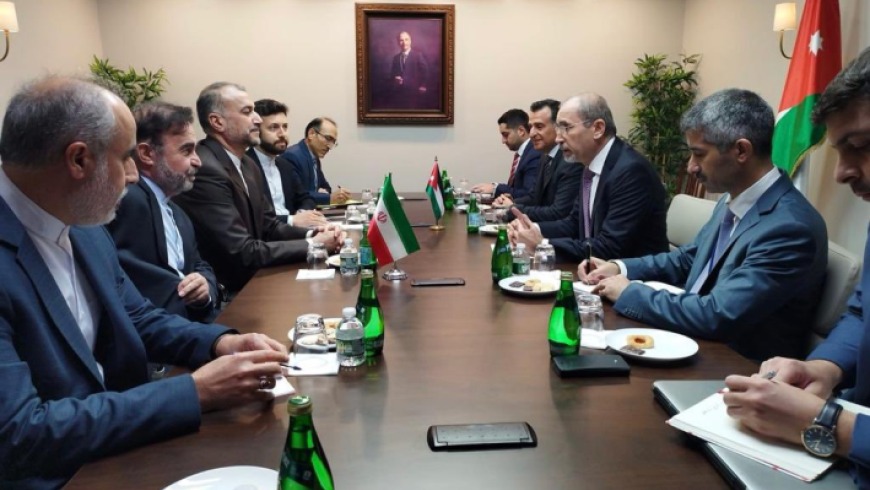Jordanian Foreign Minister Ayman Safadi held discussions with his Iranian counterpart, Hussein Amir Abdollahian, on Saturday. The talks primarily centred on the issue of drug smuggling from Syria into Jordanian territory, along with broader bilateral and regional matters.
According to al-Mamlaka TV, the two diplomats also delved into the political crisis in Syria, including Arab and UN efforts to address it through the step-for-step approach as outlined in Security Council Resolution 2254.
Minister Safadi emphasized the urgent necessity of countering the various threats posed by this crisis to Jordan’s security and the wider region. Specifically, he highlighted the significant concern of drug trafficking and reiterated Jordan’s commitment to taking all required measures to combat this menace.
Syria Today – UK Arrests British Journalist After Trip to Syria; Suweida Protests Continue
Furthermore, Minister Safadi expressed Jordan’s strong desire to alleviate tensions in the region and foster improved relations with Iran based on principles of mutual respect, good neighbourliness, and non-interference in internal affairs. He underscored that the path toward achieving this goal involves addressing the root causes of tension, underscoring the importance of the ongoing security dialogue between the two nations in pursuit of this objective.
Iranian blackmail of Oman
Former Jordanian Information Minister Samih al-Maaytah has shed light on the situation along the Jordanian-Syrian border, emphasizing that it is not merely a drug-related issue but also involves Iranian attempts to exert pressure on the Kingdom of Jordan.
In an exclusive interview conducted by the former Jordanian Minister of Information on the Syria Today program aired on Syria TV, Minister Maaytah pointed out that Iran’s motives extend beyond mere drug-related activities and that it seeks to influence Jordan, expressing concerns about Iranian interests in Amman.
He noted that Jordan had shared information with Syrian President Bashar al-Assad regarding the production and trade of Captagon within Syria. However, he lamented that Syria appears to be in a state of chaos.
King Abdullah II of Jordan has expressed reservations about the extent of Syrian President Bashar al-Assad’s control over his country. During his remarks at the al-Monitor/Semafor summit in New York City, King Abdullah II expressed uncertainty about President al-Assad’s ability to maintain order in Syria, particularly in light of the significant issues related to drug and weapon smuggling into Jordan.
Furthermore, King Abdullah II raised concerns that Iran may be benefiting from the lucrative drug trade within the country.
This article was translated and edited by The Syrian Observer. The Syrian Observer has not verified the content of this story. Responsibility for the information and views set out in this article lies entirely with the author.


